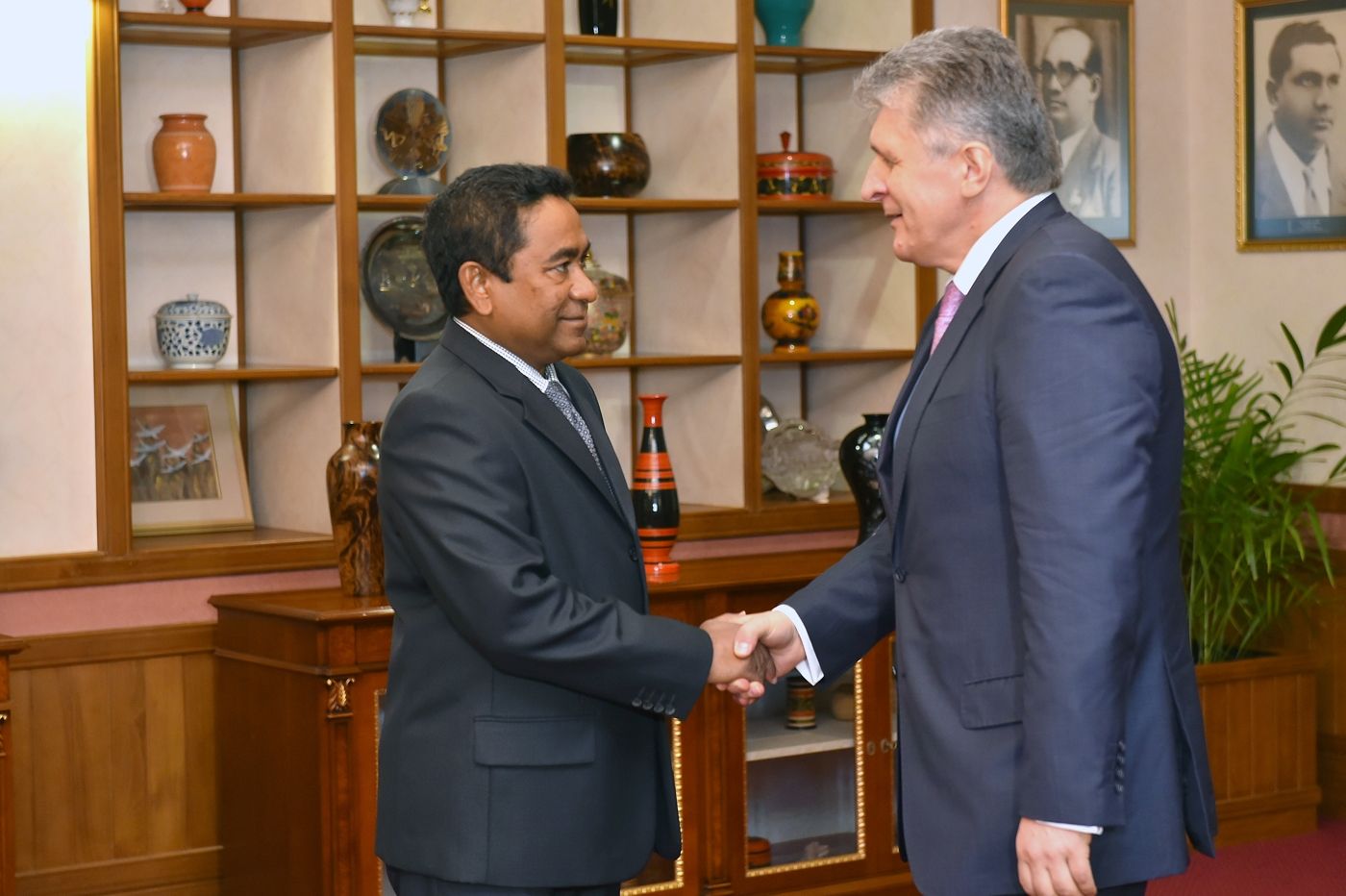UN stresses importance of building trust ahead of all-party talks
Stressing the importance of building trust between Maldives political actors, the United Nations says it is willing to facilitate Maldives’ all-party talks “depending on the developments on the ground and the willingness of the parties.”

23 Feb 2016, 09:00
Stressing the importance of building trust between Maldives political actors, the United Nations says it is willing to facilitate Maldives’ all-party talks “depending on the developments on the ground and the willingness of the parties.”
On concluding a two-day visit to Malé, Miroslav Jenča, the UN assistant secretary general for political affairs, said he welcomed President Abdulla Yameen’s invitation to the five major parties for talks and said the UN stands ready to assist.
“He underscored the importance of building trust including through strengthening independent democratic institutions and reforming the judiciary,” the UN said in a carefully worded statement.
Talks however appear dead on arrival with the government and the opposition at loggerheads over the release of jailed opposition leaders.
Become a member
Get full access to our archive and personalise your experience.
Already a member?
Discussion
No comments yet. Be the first to share your thoughts!
No comments yet. Be the first to join the conversation!
Join the Conversation
Sign in to share your thoughts under an alias and take part in the discussion. Independent journalism thrives on open, respectful debate — your voice matters.




